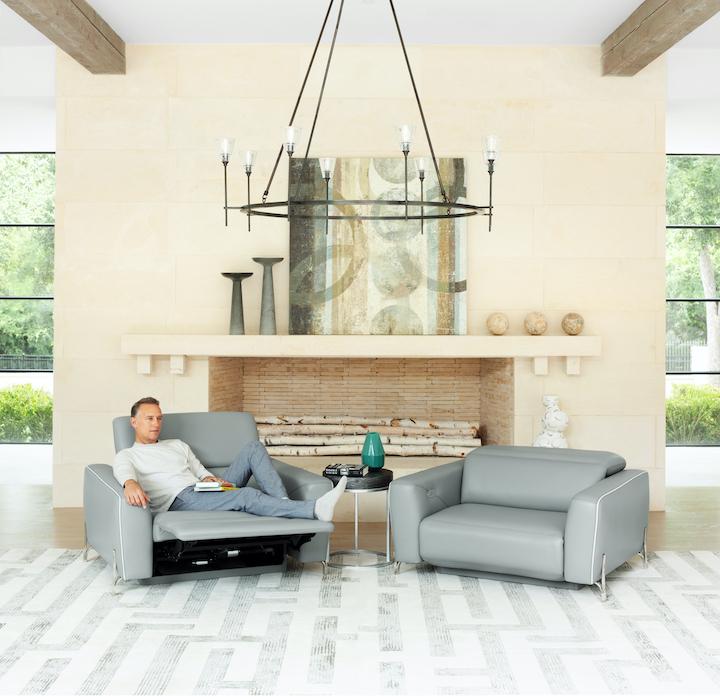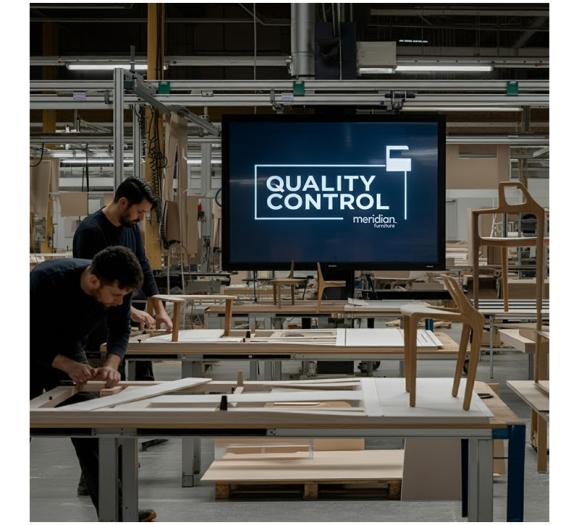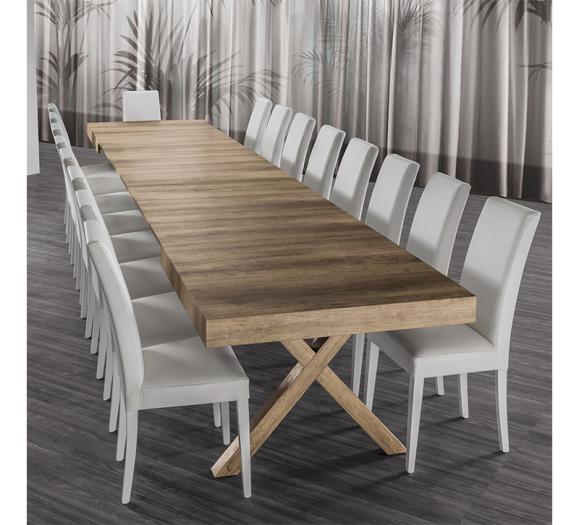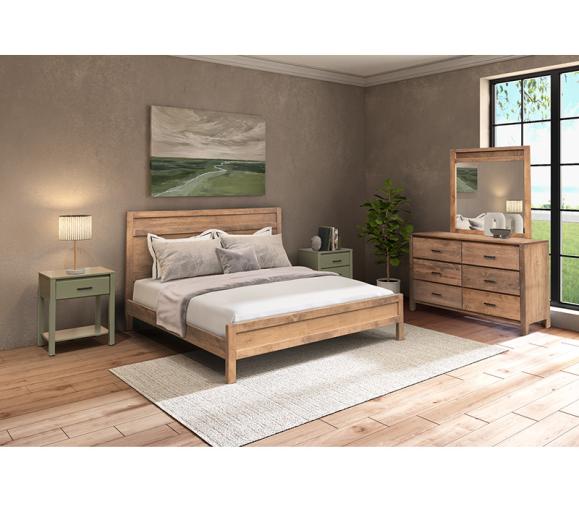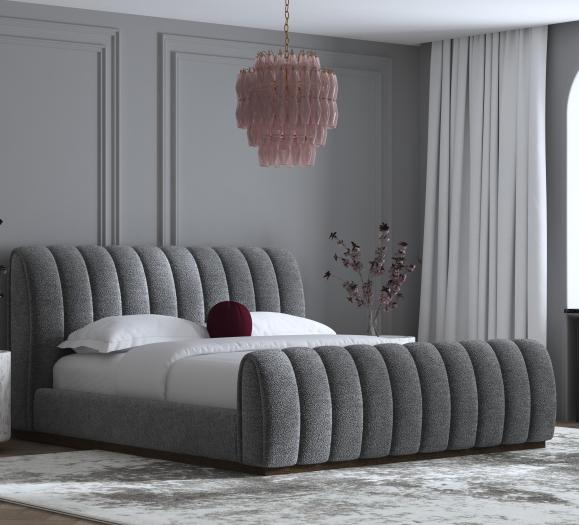When you hear the word “recliner,” the words “elegant,” “modern,” or “chic” might not be the first that come to mind. For many design-oriented folk, the classic La-Z-Boy recliner has always been something of an eyesore — a super comfortable one, sure, but still something meant to be hidden away in a man cave, basement or at least a den separate from the living room.
“We used to have this saying, that you could always tell how much a wife loved her husband by how ugly the recliner he was allowed to buy was,” says Mark Wilson, Director of Merchandising at Comfort Design with a laugh.
While the clunky recliners and motion furniture of 20-plus years ago could be something plucked out of an interior designer’s nightmares, today’s motion furniture is telling a different story. Thanks to improved technology and a response to changing consumer lifestyles, motion manufacturers are creating designer-friendly pieces with sleeker silhouettes, improved functionality and stylish fabrics that are perfectly at home displayed proudly in the living room.
Technology in Motion
“Motion used to look like a big clunky piece of furniture, and now with the advancements in technology, motion has started to look more and more like stationary furniture,” says Spencer Bass, Creative Director at American Leather.
In fact, Bass said he’s often seen people walk into the American Leather showroom and take a seat in what they presume is a high-back stationary piece, only to show a look of surprise when they realize they’re sitting on motion furniture.
So what changed? One piece of the puzzle is technological innovations in the hardware that makes motion furniture move. Motion furniture inherently requires more bulk to hide all of the mechanics and metal components that make it work. But as motors and mechanisms have become smaller over the years, it’s become easier to upholster around them for a sleeker finished product.
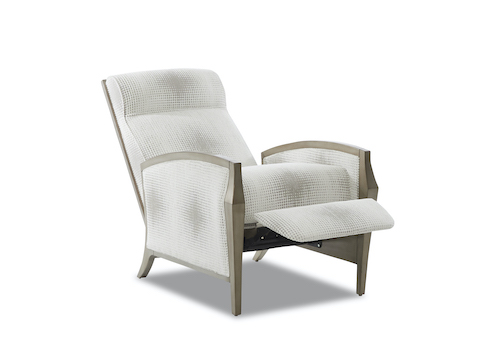
The introduction of power motion also offers today’s consumers the option of an unobtrusive button tucked into the arm or side to control the furniture instead of the manual crank that used to be standard.
Wilson says at Comfort Design, he’s seen chair arms, in particular, size down with the advent of smaller electronic parts.
“I’ve now got the the control system down to where I can make a 2.5-inch-wide arm, where in the past that had to have a 4- to 4.5-inch-wide arm to make it big enough to hold the components,” Wilson says. “So now I can do it with a 2.75- or 3-inch arm, which looks more sleek and substantially cleaner and nicer.”
It’s not just the improved, smaller components alone that allow for sleeker motion pieces, Wilson adds. It’s also increased acceptance and interest in sleek motion on the part of consumers that drives the volume needed for manufacturers to see the benefit of mass-producing units of component pieces.
“There’s now more focus on making a better, nicer-looking chair that still performs those comfortable functions, and since there’s more emphasis in that category, the guys who are developing the mechanisms are much more in tune to it and there’s more volume involved. That makes it profitable for the guys making the component pieces to help develop mechanisms and components that more easily lend themselves to a better-looking, more functional and sleeker piece. So it’s not really that they cured cancer, it’s just that there are more people accepting the category. That makes it beneficial for those guys to stamp out those types of mechanisms.”
Changing Consumer Lifestyles
Along with technological advances, shifting consumer lifestyles have also given rise to a thriving market for stylish motion furniture. Where many homes used to have a formal living room meant for entertaining and a family room or den where the TV was (and where the family actually spent time), today’s homes are moving toward open floor plans with one main living room featuring a TV.
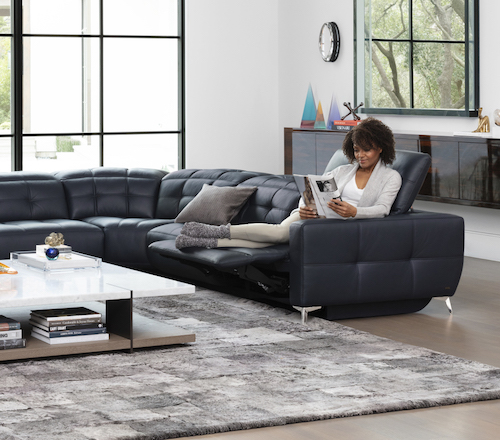
American Leather is designing product with this in mind, Bass says.
“We literally designed the sofa with the idea of, if there was a TV in front of me, how can the headrest articulate to get the perfect seating position to watch television,” he says. “This is the sofa for the living room with the TV now, not the sofa for the living room with the occasionally sat-in sofa.”
These changing floor plans reflect less formal attitudes among consumers, Wilson notes.
“With the consumer being more casual in their attitudes and their lifestyle, it’s becoming much more acceptable to be comfortable in your home, and kicking your feet up has always been a staple of that environment,” Wilson says.
With the rise of streaming services, consumers are staying in to watch movies in the comfort of their home, and want to create a comfortable experience without compromising on style.
“You don’t have to give up comfort to get the look that you’re looking for, and that’s really what we’re striving for,” Wilson says.
Form Meets Function
Founded in 1990, American Leather has been in the motion business for about 20 years — and Bass says it’s grown to be the company’s largest product segment. The most popular product is its Comfort Sleeper, a sleeper sofa offered in 15 styles that features a construction with no uncomfortable bars or springs. Along with its own product offering, the company also makes sleeper sofas for retailers such as Restoration Hardware and Room & Board.
Over the last few years, American Leather has launched three categories of its Style in Motion series of sofas and chairs, the newest of which just launched at the fall 2019 High Point Market. The Style in Motion A-series features pieces with a solid back for a more stylish look from every angle — a benefit for consumers who want to float sofas in an open floor plan. Customers can also customize with three different arm styles and nine different back options, along with their choice of 177 fabrics or 100 leathers. Bass says a goal of the new A-series was to continue to offer a range of product, both in terms of price point and styles ranging from transitional to modern.
“Somebody who likes contemporary may not respond to transitional, and somebody who likes transitional may not respond to contemporary,” he says, “so it’s about having all the different lifestyles of motion that your retailer can cover. What a store in Aspen or in Denver might carry would probably not be the same thing somebody in Miami carries.”
Introduced about a year ago was American Leather’s I-series, inspired in part by 1960s Italian mod sportscars. The Turin chair, with peekaboo welt detailing and metal sled legs, earned the company a Pinnacle Award at fall’s High Point Market. Across all of the styles offered, Bass is proud to offer sleek motion upholstery delivered in just 30 days.
At Comfort Design, launched in 2009 as a higher-end offshoot of Klaussner, a new partnership with designer Stacy Garcia is helping the company reach interior designers. Announced before last fall’s High Point Market, Garcia will debut a stylish new line with Klaussner and Comfort Design at the upcoming market in April.
With Garcia’s eye for pattern and color and Comfort Design’s customization capabilities (they offer a variety of nail and cushion options along with more than 300 leathers and thousands of fabrics), Wilson says the partnership is moving the company in a promising direction.
The recent trend toward more transitional looks has made it easier to style motion furniture in a way that fits each consumer’s aesthetic, Wilson says. Twenty years ago, he says a recliner line would likely feature hardcore traditional and hardcore contemporary styles, offering little room for customizability.
“Because it’s all blending, now a lot of the styles are going to fit in more environments, and the consumers themselves are also much more eclectic,” Wilson says.
With different fabrics, nails and other design components, a motion chair with the same silhouette can be customized to fit any environment. When motion doesn’t have to look just one way as it may have in the past, the consumer appeal becomes broader.
Along with aesthetic styles, Comfort Design also offers a range of motion options. Any given chair starts with manual, then graduates up to single power (a single button to power recline), then graduates up to power recline with a power headrest, and then graduates up to power recline with power headrest and power lumbar. The next version has all of these features plus a new heat and massage system that Wilson says gives a great massage and uses inductive heating technology that doesn’t damage the fabric. Out of all of these features, Wilson says power recline and power headrest functions have become a given, so much so that they’ll develop pieces with these features before creating the manual version.
With all of the innovations and style options available in motion today, the question remains: Are consumers aware of all that the motion world has to offer? Wilson says it’s hard to tell, since people only really pay attention when they’re in the market for a new piece of furniture. As consumers and designers alike continue to catch on, today’s manufacturers will continue making motion that’s fit for everyone, from the Archie Bunkers to the Frasier Cranes.



